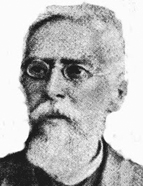

Without disregarding Portuguese despotism, historian Junia Ferreira Furtado refuted the thesis of a "colony within another colony", and that the abuses and rigours of the administrators would affect everyone, indistinctly: "When it is said that the Regiment and the concentration of powers it made possible in the hands of the Intendant were the only causes of the arbitrariness and injustices committed within the District, the reality of the rest of the Colony is unknown. In the colonial administration, other officials had enormous authority and privileges, acting in a discretionary manner and committing countless arbitrary acts. Those who suffered most from this despotism were the poorest, since legislation was almost entirely geared towards repressing and controlling this mass of lowlifes and outcasts who prowled all the urban agglomerations of the Captaincy and generated instability" (J.F. Furtado, O livro da capa verde ... [The green cover book...], 2012, p. 72).
The thesis put forward by Joaquim Felício dos Santos was grounded in the selection of authors whose works emphasised the abuses committed by Crown officials in enforcing the rules outlined in the Green Book: José Vieira Couto, an important resident of the village of Tejuco, author of Memórias sobre a Capitania de Minas Gerais: seu território, clima e produções metálicas [Memoirs about the Captaincy of Minas Gerais: its territory, climate and metal production] , in 1799; the Englishman Robert Southey, História do Brasil [History of Brazil] vol. III, 1819; and the French naturalist Auguste de Saint-Hillaire, Viagem pelo Distrito dos Diamantes e Litoral do Brasil [Journey through the Diamond District and the Coast of Brazil], 1833. The framework of isolation and despotism of the district used in the narrative of Joaquim Felício dos Santos would be connected to the disputes of this author's political group in regional and national terms in the Second Reign, based on the political use of the past (E. L. Novaes, Joaquim Felício dos Santos... ). 2014, p. 93). Still in Memórias ..., the most important Brazilian historian at the time, Francisco Adolfo de Varnhagen, is described as biased when it comes to characterising rulers (Conde de Valladares) and the origin of iron smelting in Brazil.
This work is financed by national funds through FCT - Foundation for Science and Technology, I.P, in the scope of the projects UIDB/04311/2020 and UIDP/04311/2020.
